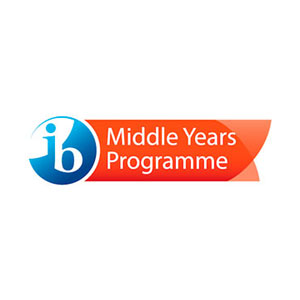

Admission to the nursery school of the Aga Khan Academy, Nairobi (AKAN) is based solely on merit. The school does not discriminate by nationality, ethnic origin or religion. Parents of students with non-Kenyan nationalities must show a valid residence permit and obtain a student pass for their child to be enrolled at the school.
AKAN believes that each child has their own strengths. Admissions are based on the inclination of the student in terms of their creativity and critical thinking.
The criteria for admission to nursery school of the Aga Khan Academy, Nairobi include:
Prospective parents are welcome to visit the school. Children are placed in age groups dependant on their age.
Prospective students are required to attend a developmental assessment .Students applying for K2 and K3 will be required to complete a written admission assessment.
Payment and fee guidelines for the 2021-2022 academic year are available in this document (PDF).

Admission is based solely on merit and the School does not discriminate in admissions on nationality, race, tribe, ethnic origin or religion. Parents of students with non-Kenyan nationalities must show a valid residence permit, and obtain a student pass for their child to be enrolled at the School.
All prospective students are expected to be conversant in English, have good numerical literacy, show academic aptitude and interest in co-curricular/sporting activities, and have a positive record of behaviour both in and outside the classroom.
In September each year, the Junior School admits approximately 75 students into Grade 1, aged 5.8 to 6.8 years. Preference is given to students from the Aga Khan Academy, Nairobi - Nursery School, where the PYP curriculum is followed. Students from the Nursery School receive admission to the Junior School if they have been at the nursery School for at least two years (K2 and K3) and they receive a recommendation for admission from the Head-Teacher of the Nursery School.
A small number of students are also admitted from other various nursery schools. For these students, selection is based on performance on entry level assessments and interviews with the students and parents.
For admission into other grades, an applicant is required to sit an entrance test. An interview will also be held with the student and sometimes with parents. Past reports from previous schools are taken into consideration for admission.
The Aga Khan Academy offers Scholarships to recognize academic excellence to new or continuing students. These scholars must have other outstanding qualities in the areas of citizenship and character to benefit from an education at The Aga Khan Academy, Nairobi.
All scholarships are based on a demonstration of financial need.
The number of scholarships and the amount will vary from year to year.
The Aga Khan Academy wishes to attract high calibre students who maintain or advance the academic standard of the School. To assist families who would like to educate their children at the Academy, but cannot afford full fees, a limited amount of assistance may be granted in exceptional cases. The families concerned may apply to a special Aga Khan Education Service, Kenya panel for consideration.


Admission to the senior school of the Aga Khan Academy, Nairobi (AKAN) is competitive and based on merit. The school does not discriminate by nationality, ethnic origin or religion.
Students are admitted in line with the below guidelines, based on consultations with the Admissions Officer and, if needed, Programme Coordinators and the Head Teacher, and after the admission fee has been received and a signed copy of the school contract has been sent to the school.
Junior School Students from the Aga Khan Academy, Nairobi (AKAN)
Admission for students graduating from Grade 5 is automatic with a recommendation from the Head Teacher of the junior school, except for students who have not cleared their school fees and other financial obligations to the junior school.
The Head Teacher shall provide a recommendation to students who have:
The Junior School Head Teacher shall provide a recommendation to students who have:
For all recommended students, the Head Teacher will provide all relevant information to the senior school Admissions Committee, including report cards, learning support records, behaviour records and relevant exam results.
Students from Other Schools
Candidates from other schools must meet the following requirements in order to be considered for admission:
Parents will be required to bring copies of the student’s birth certificate and original documents pertaining to their previous schooling.
Conditional Acceptance
Conditional acceptance to MYP 1-3 may be given in exceptional circumstances to students who:
What is the IB Diploma?
The IB DP is a two-year, pre-university diploma course administered by the IB Organization (IBO) based in Geneva, Switzerland. Currently, there are over 5,500 IB schools in more than 100 countries worldwide. The IB DP is for students aged between 16 and 19 years. Essentially international, it combines the specialisation required in some national systems and the breadth preferred in others.
What are the requirements for the diploma?
An overall 24 points is required to be awarded the diploma (an average grade 4 in 6 subjects). All HL subjects must have a minimum grade of 4 to qualify for the diploma. The candidate must also meet three additional requirements:
If a candidate scores a grade E in either the EE or TOK, the candidate will not pass the diploma.
Admission Requirements
(A) Internal (AKAN) Students
Internal students graduating from MYP 5 will be required to show their capacity to perform well in the DP. They will be required to meet the following, in addition to the DP entry requirements:
(B) Students from Other Schools
Candidates from other schools must meet the following requirements in order to be considered for admission:
Diploma Core Components
The core of the IB DP is composed of three areas that complement and build on the academic curriculum. Each part is equally important. Students must complete all three components to receive the IB Diploma:
Theory of Knowledge
TOK explores critical thinking and asks about how we know what we claim to know. Students will analyse knowledge claims, as well as explore knowledge questions and different knowledge frameworks.
Most of the TOK course is completed in the first year where the students:
In year two, students will complete the last TOK assessments which entail:
Extended Essay
The EE is an integral part of the IB DP, together with TOK and CAS. It is the students’ opportunity to look in greater detail at one of their subject areas. This is an independent research project which begins in January of the first year and finishes in January of the second year. The final product is an essay of 4,000 words. The basic EE process is as follows:
As the EE is an independent research project, it is the student’s responsibility to arrange regular meetings with their supervisor.
Creativity, Activity and Service
"The best way to find yourself is to lose yourself in the service of others." – Mahatma Gandhi
Full commitment to the creativity, activity and service programme is central to the successful completion of the IB DP and to achieving the mission and values of AKAN. Students’ participation, engagement and initiative in activities is considered equally valuable to the time and energy put into academics. CAS provides an important counterbalance to the academic side of the IB DP. A good CAS programme should be challenging and enjoyable. It should also be a journey of self discovery which allows students to develop personal and interpersonal skills. CAS activities will provide profound, life changing experiences, despite each student having different starting points, goals and needs.
The three components of CAS often overlap in activities. Individually they are characterised as follows:
Creativity: Exploring and extending ideas, leading to an original or interpretive product or performance.
Activity: Physical exertion contributing to a healthy lifestyle.
Service: Collaborative and reciprocal engagement with the community, in response to an authentic need.
Students are encouraged to take initiative and lead activities, and just as importantly, simply participate in activities. Commitment to full engagement in CAS is crucial to passing the IB DP, and quality of experience is important. Advisers will guide students through the CAS programme and evaluate their participation and commitment. Advisers will share with and report progress to other stakeholders, if necessary.
Diploma Failing Conditions
From the May 2015 session, the following are the failing conditions, as published by the IBO:
Subjects Offered and Levels
Group 1: Language A
English Language and Literature SL
Group 2: Language B
Spanish SL
French SL/ab initio
Swahili HL/SL
Group 3: Individuals and Societies
Business and management HL/SL
Economics HL/SL
History HL/SL
Information technology in a global society HL/SL
Psychology SL/HL
Group 4: Sciences
Biology HL/SL
Chemistry HL/SL
Physics HL/SL
Environmental systems and societies SL
Group 5: Mathematics
Analysis and approaches HL/SL
Applications and interpretation HL/SL
Group 6: Arts, Sciences, Individuals and Societies
Film studies HL/SL
Business and management HL/SL
Economics HL/SL
Geography HL/SL
Biology HL/SL
Chemistry HL/SL
Instructions for choosing subjects
School Fees
[ Download school fees in PDF format ]
Optional Fee
Optional per term
NOTE: Fees are subject to change. Please contact the school for fee policies and payments.

The Aga Khan Academy, Nairobi Senior School offers Scholarships to recognize academic excellence and all round talent (academic excellence combined with demonstrated achievement in artistic, dramatic, dance, musical, or athletic performance) to new or continuing students in grades 7, 10 (first year of IGCSE) and Grade 12 (first year of IB). These scholars must have other outstanding qualities in the areas of citizenship and character to benefit from an education at the Aga Khan Academy, Nairobi Senior School.
All scholarships are based on a demonstration of financial need.
The number of scholarships and the amount will vary from one year to the next. The School is committed to meeting the maximum possible financial needs of scholars within the limits of the budget.
The Aga Khan Academy Nairobi Senior School wishes to attract high calibre students who maintain or advance the academic standard of the School. To assist families who would like to educate their children at the Academy, but cannot afford full fees, a limited amount of assistance may be granted in exceptional cases. The families concerned may apply to a special Aga Khan Education Service, Kenya panel for consideration.
Optional fee
Lunch fee: Optional per Term
New Students
Admission fee: 10,000 (non refundable)
Text book levy: 15,000 (non refundable)
Caution deposit: 15,000 (Refundable)
NOTE: Fees subject to change. Please contact school for Fee policies and payments.

© Aga Khan Schools 2009 - All rights reserved
Terms & Conditions | Privacy Policy
The Aga Khan Schools are part of the Aga Khan Education Services,
an agency of the Aga Khan Development Network
© Aga Khan Schools 2009 - All rights reserved | Terms & Conditions | Privacy Policy
The Aga Khan Schools are part of the Aga Khan Education Services,
an agency of the Aga Khan Development Network